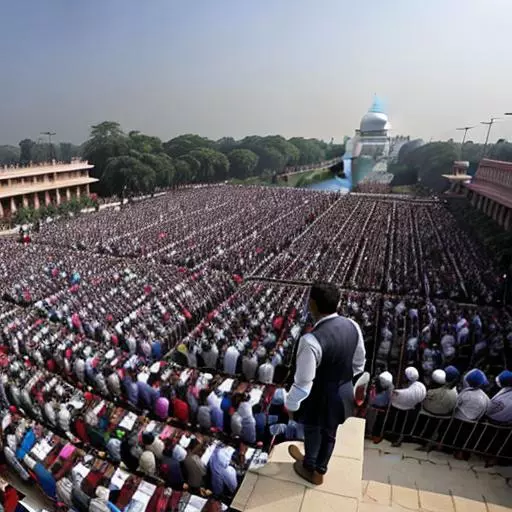In the ever-changing landscape of Indian politics, understanding the nuances of electoral outcomes is key to shaping future strategies. In this insightful blog post, we delve deep into the realm of post-election analysis, dissecting both successes and failures in Indian politics. Here’s a comprehensive guide on how to learn from past elections to pave the way for a stronger political future:
1.Data-Driven Insights:
- Election Data Analysis: Explore voting patterns, demographics, and regional variations. Data-driven insights provide a clear picture of what worked and what didn’t.
- Comparative Studies: Compare successful campaigns with unsuccessful ones. Identify the factors that set them apart, from candidate selection to communication strategies.
2. Understanding Voter Sentiment:
- Exit Polls and Surveys: Analyze exit polls and voter surveys to gauge public sentiment. Understand the issues that mattered most to the electorate and how these influenced their choices.
- Focus Group Discussions: Engage in focus group discussions to delve into the emotional and psychological aspects of voter decision-making. Uncover underlying sentiments that numbers might not reveal.
3. Candidate Selection and Leadership:
- Candidate Profiles: Scrutinize the profiles of successful candidates. Assess their background, credibility, and local influence. Understand how these factors contributed to their victory.
- Leadership Dynamics: Evaluate the role of party leadership. Analyze the charisma, vision, and communication skills of leaders. Learn from successful leaders’ ability to connect with diverse voter groups.
4. Communication and Campaign Strategies:
- Media Outreach: Study the effectiveness of media outreach strategies, including social media, television, and print. Identify which platforms resonated with the target audience.
- Ground Game: Assess the ground game, including door-to-door campaigns, rallies, and public engagements. Evaluate the impact of direct voter interactions on election outcomes.
5. Policy and Issue-Based Analysis:
- Policy Relevance: Examine the relevance of party policies and promises. Evaluate how well they addressed the pressing concerns of the electorate.
- Issue-Based Campaigning: Understand the success of issue-based campaigns. Analyze how parties that focused on specific issues resonated with voters and how this translated into votes.
6. Alliance Dynamics:
- Coalition Building: Study the impact of alliances and coalitions on electoral success. Analyze how collaborative efforts influenced voter perceptions and behavior.
- Post-Election Alliances: Evaluate post-election alliances and their significance. Understand how alliances formed or broken after elections shape the political landscape.
7. Lessons for Future Campaigns:
- Identifying Gaps: Pinpoint gaps and weaknesses in unsuccessful campaigns. Understand the missed opportunities and areas needing improvement.
- Replicating Success: Emulate successful strategies. Identify elements that can be replicated in future campaigns to garner public support and trust.
8. Public Perception and Image Building:
- Public Image: Analyze the public image of candidates and parties. Understand how perceptions were shaped and the role media played in building these images.
- Crisis Management: Study how parties handled crises or controversies. Assess the impact of crisis management on public perception and voting behavior.
9. Stakeholder Feedback and Reflection:
- Internal Party Feedback: Gather feedback from party members, volunteers, and strategists. Understand their perspectives on what worked and areas needing improvement.
- External Stakeholder Reflection: Seek feedback from analysts, academics, and political commentators. Gain external insights to supplement internal assessments.
10. Building a Roadmap for the Future:
- Strategic Planning: Develop a comprehensive strategy for future elections. Incorporate insights from the analysis into party manifestos, candidate selection processes, and communication strategies.
- Adaptability: Embrace adaptability as a core principle. The political landscape is ever-changing. Parties that can adjust their strategies based on past lessons are better positioned for success.
This post-election analysis serves as a valuable roadmap for political parties and campaigners. By critically examining both successes and failures, Indian politics can evolve, ensuring that future campaigns are not just informed by history but also shaped by a deep understanding of the electorate’s pulse. Learning from the past is the first step towards building a brighter and more responsive political future for India.

